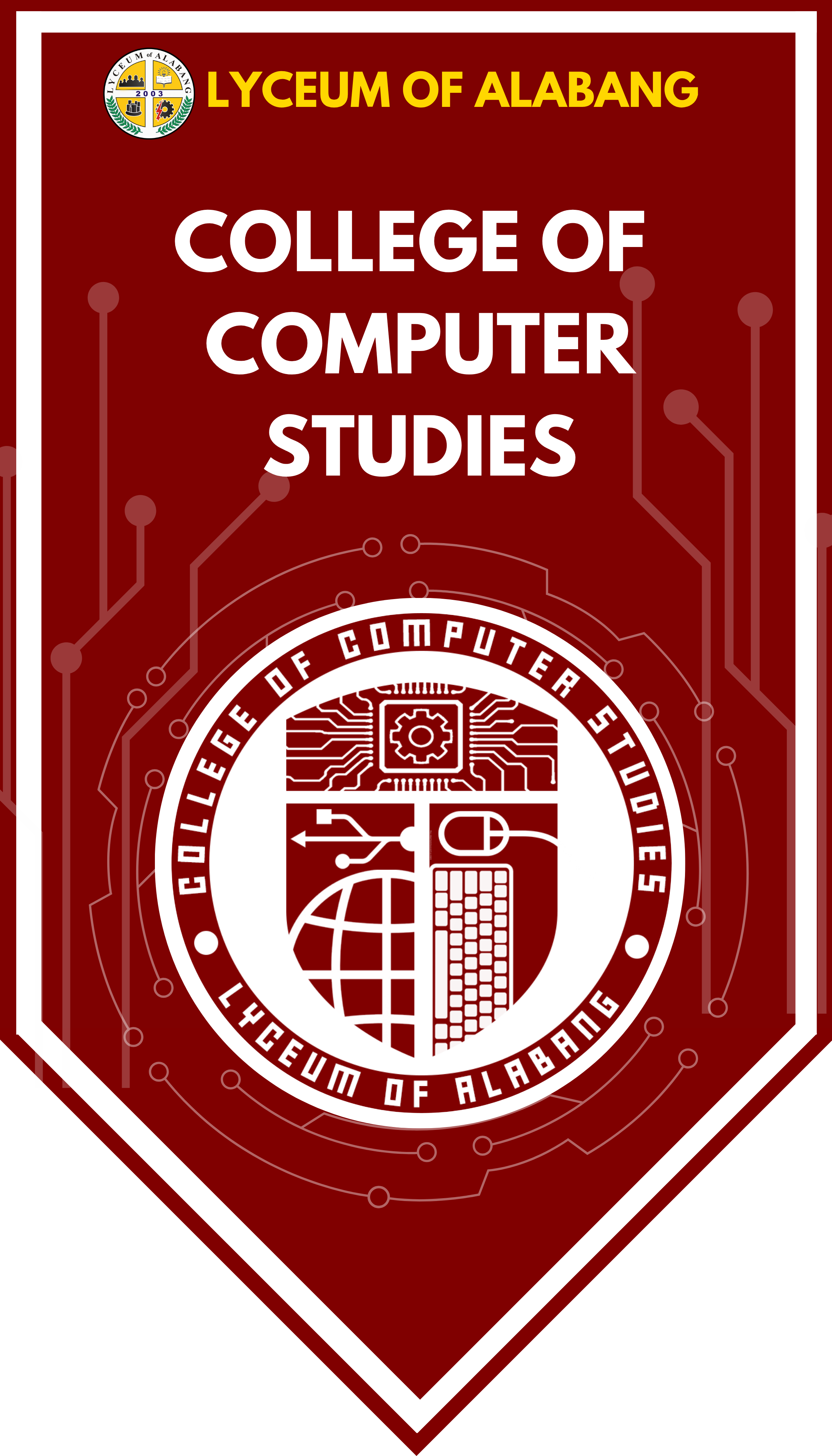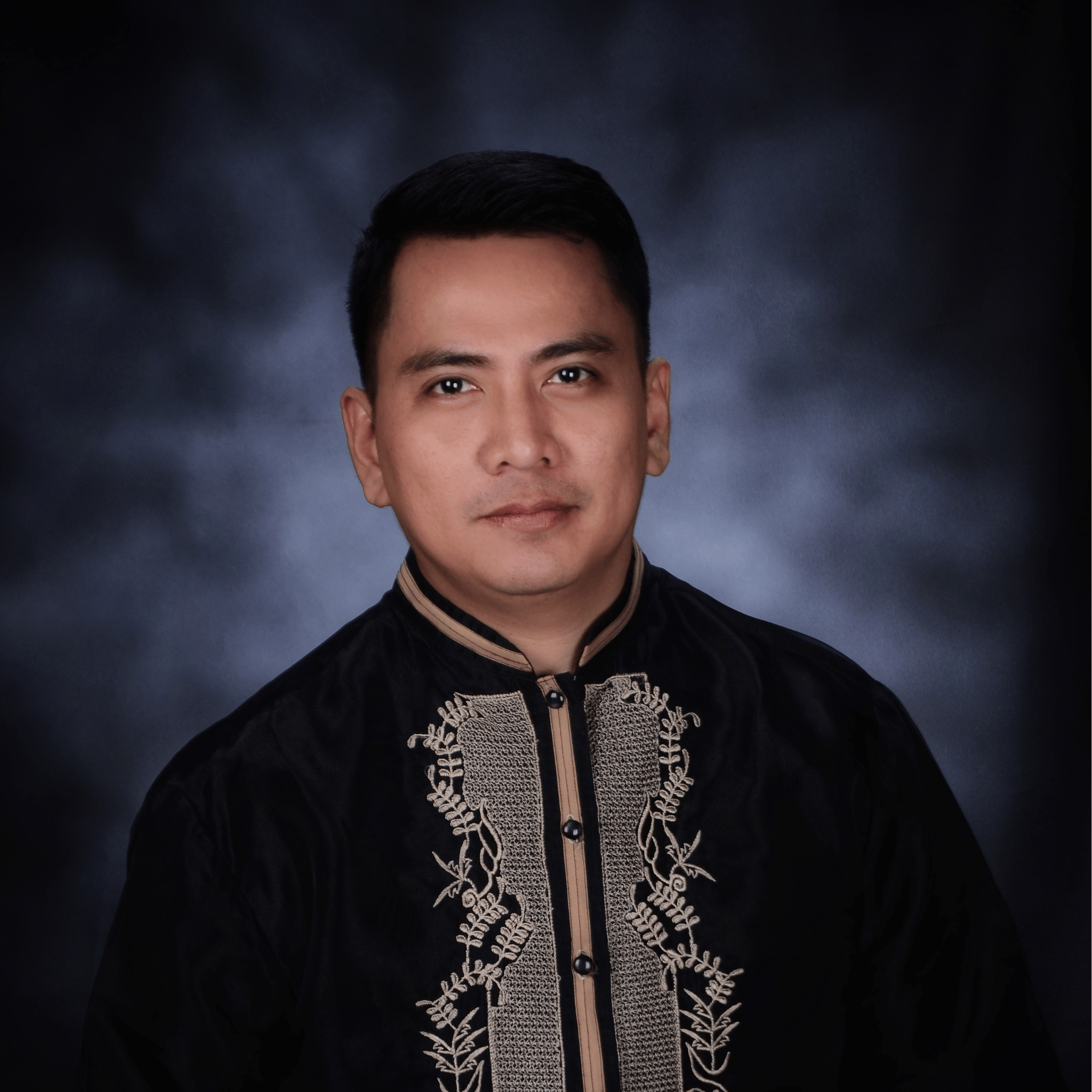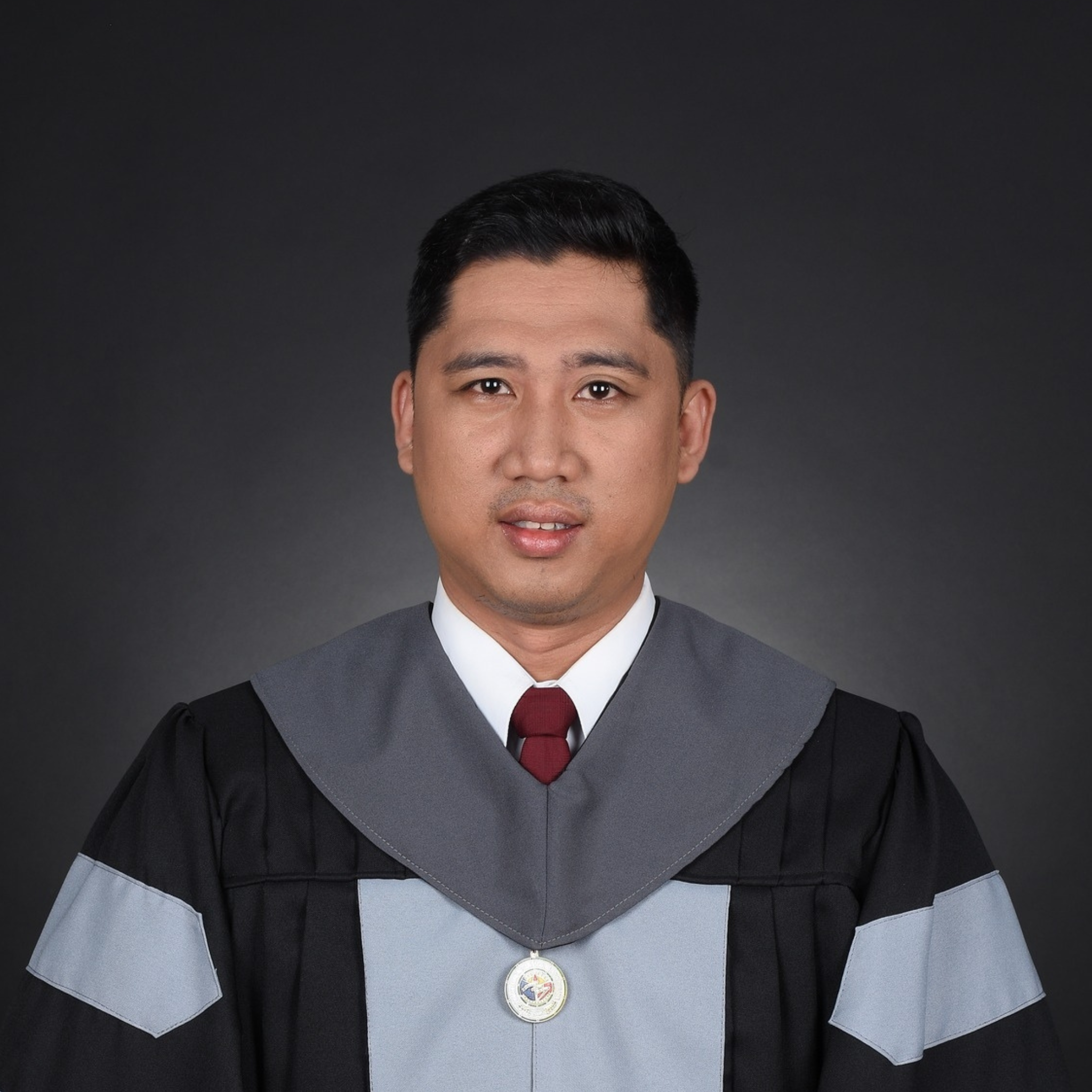MR. REGIE C. ELLANA
Dean, Computer Studies
MR. ANDRO PHILIP BANAG
Program Coordinator, BSIT
VISION
The College of Computer Studies envisions itself as a center of excellence in information technology and computer science education, producing globally competitive graduates who embody innovation, integrity, and social responsibility in advancing personal, community, and national development.
MISSION
The College of Computer Studies shall provide world-class education and training through competent faculty and staff, high-end facilities, advanced technology, and industry-accredited curricula to ensure excellence in learning and service to all stakeholders.
CONTACT DETAILS
MR. REGIE C. ELLANA
Dean, Computer Studies
regie.ellana@lyceumalabang.edu.ph
MR. ANDRO PHILIP BANAG, MIT
Program Coordinator, BSIT
ap.banag.college@lyceumalabang.edu.ph
TEL NO: (02) 8856-9323 loc 138
PROGRAMS
BACHELOR OF SCIENCE IN COMPUTER SCIENCE
Program Educational Objectives (PEOs)
Three to five years after graduation, the BS in Computer Science alumni shall:
-
- have career progression in their field of specialization;
- demonstrate globally competitive skills and Lycean values; and
- engage in community and/or national development.
Program Intended Learning Outcomes (PILOs)
At the completion of the BS in Computer Science program, the students are expected to:
-
- Apply knowledge of computing fundamentals, computing specialization, mathematics, science, and domain knowledge to abstract and conceptualize computing models from defined problems and requirements.
- Identify, analyze, formulate, research literature, and solve complex computing problems using mathematics, computing sciences, and relevant domain disciplines.
- Apply mathematical foundations, algorithmic principles, and computer science theory in modeling and designing computer-based systems, demonstrating an understanding of design tradeoffs.
- Understand information security issues related to the design, development, and use of information systems.
- Design and evaluate solutions for complex computing problems, and design and evaluate systems, components, or processes that meet specified needs considering public health, safety, cultural, societal, and environmental factors.
- Create, select, adapt, and apply appropriate techniques, resources, and modern computing tools to complex computing activities, understanding their limitations.
- Function effectively as an individual and as a team member or leader in diverse teams and multidisciplinary settings.
- Communicate effectively about complex computing activities through reports, design documentation, presentations, and clear instructions.
- Recognize legal, social, ethical, and professional issues in computer technology and adhere to appropriate practices.
- Recognize the need for and engage in independent learning for continual development as a computing professional.
- Preserve and promote “Filipino historical and cultural heritage” (based on RA 7722)
BACHELOR OF SCIENCE IN INFORMATION TECHNOLOGY
Program Educational Objectives (PEOs)
Three to five years after graduation, the BS in Information Technology alumni shall:
-
- have career progression in their field of specialization;
- demonstrate globally competitive skills and Lycean values; and
- engage in community and/or national development.
Program Intended Learning Outcomes (PILOs)
At the completion of the BS in Information Technology program, the students are expected to:
-
- Apply knowledge of computing, science, and mathematics appropriate to the discipline.
- Understand best practices and standards and their applications.
- Analyze complex problems and identify and define the computing requirements appropriate to its solution.
- Identify and analyze user needs and take them into account in the selection, creation, evaluation and administration of computer-based systems.
- Design, implement, and evaluate computer-based systems, processes, components, or programs to meet desired needs and requirements under various constraints.
- Integrate IT-based solutions into the user environment effectively.
- Apply knowledge through the use of current techniques, skills, tools and practices necessary for the IT profession.
- Function effectively as a member or leader of a development team recognizing the different roles within a team to accomplish a common goal.
- Assist in the creation of an effective IT project plan.
- Communicate effectively with the computing community and with society at large about complex computing activities through logical writing, presentations, and clear instructions.
- Analyze the local and global impact of computing information technology on individuals, organizations and society.
- Understand professional, ethical, legal, security and social issues and responsibilities in the utilization of information technology.
- Recognize the need for and engage in planning self – learning and improving performance as a foundation for continuing professional development.
- Preserve and promote “Filipino historical and cultural heritage” (based on RA 7722)




